Special Olympics Healthy Athletes Global Partner
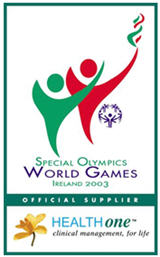
Special Olympics has used the Health One health record technology to record the health data gathered in the world-wide Healthy Athletes program on the occasion of hundreds of national and international events. The Health One technology was made available as a charitable donation.
Timothy P. Shriver, Special Olympics Chairman, says of Health One Global Limited’s contribution “A global technology partner of this caliber is exciting for Special Olympics. As our Movement continues to grow and further benefit the lives of individuals with intellectual disabilities, we need the kind of state-of-the-art databases and software systems that Health One Global can provide”.
Please read reports of World games hereunder.
Special Olympics World Summer Games :
- Shanghai 2007

|
At the Special Olympics World Summer Games in Shanghai in October 2007, 7,000 athletes from 155 countries round the world, did participate in the biggest sporting event on the planet in 2007. |
Over the 8 days of the event, Special Olympics recorded in HEALTHone 18,536 health screening sessions on 4,879 athletes from 159 countries - a world record for Special Olympics (and probably for any other organization). In addition over 2,000 Medical Encounters (accidents, or illnesses) were recorded in HEALTHone over the Internet in Chinese by several hundred Chinese doctors at 200 Medical Centers located at World Summer Games venues all over Shanghai (details). During the Shanghai games, a prototype portable healthcare record (PHR) was demonstrated, and Special Olympics announced its decision to launch a pilot for the use of PHRs in co-operation with HEALTH One Global. | 
|
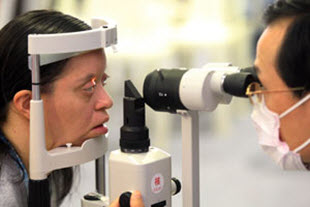
| A Special Olympics volunteer ophthalmologist examines the eyes of an athlete during the World Summer Games in Shanghai in October 2007 |
A Chinese volunteer enters the screening data into athletes’ records using HEALTHone Internet during the World Summer Games and shown on a CCTV5 Chinese TV report | 
|
- Athens 2011
The Special Olympics 2011 World Summer Games, held in Athens, Greece in June and July 2011 was the largest sports event world-wide in 2011, and was host to 6,500 athletes from 160 countries for 9 days of Olympic style events.
As the exclusive Special Olympics Healthy Athletes Global Partner since 2003 Health One Global provides its electronic health record software solution HEALTHone for two different applications:
- Healthy Athletes Software (HAS) to record the screening details of all athletes screened. This also occurs at up to 930 events world-wide each year;
- Medical Encounter Software (MES) for the medical primary care of the participating athletes, their coaches, volunteers and member of the public attending all Games events but also including all residential venues.
Healthy Athletes Software
HEALTHone was installed on a local area network at the Healthy Athletes screening venue. All demographic data including sporting event, medical history, contact data was imported directly from the Special Olympics Games Management System (GMS) to create the basic patient record in HEALTHone.
13,858 screenings were carried out in 9 days from 26th June 2011 to 4th July 2011 by global volunteer screeners from around the world assisted by Chinese volunteers. All screening data was recorded on Special Olympics standard Healthy Athletes forms and taken to the Healthy Athletes data centre, set up specifically for the event. 50 Greek data enterers worked in shifts on 24 networked PCs to enter the 13,858 screenings into HEALTHone.
Of the 6,507 athletes from 160 countries who attended the Games, 3,751 (57.6%) of them underwent at least one of the 6 screening programs available. On average each athlete attended 3.7 of the 6 screening programs.
To screen 3,751 people from 160 countries in 9 days was a major achievement for Special Olympics. Few organisations globally have the knowledge, resources, commitment and experience to mount such an event, which Special Olympics does every 4 years, plus a World Winter Games every 4 years too!
The Healthy Athletes free screenings were offered to all athletes in six separate screening programs:
Fit Feet |
Podiatry: assessment of feet, gait and footwear, provision of heel raises, onward referral, education. |
FUNFitness |
Physical therapy: measurement of muscle strength, joint mobility, flexibility, range of movement, onward referral, education. |
Health Promotion |
Health Promotion: comprehensive lifestyle assessment including smoking, diet, exercise, measurement of height and weight, education. |
Healthy Hearing |
Audiology: comprehensive hearing assessment, fitting hearing aids, onward referral, education. |
Opening Eyes |
Ophthalmology: comprehensive visual assessment including acuity, color vision, perception, provision of new prescription eyewear on the spot, onward referral, education. |
Special Smiles |
Dental: comprehensive dental assessment, onward referral, education. |
Healthy Athletes Attendance
|
|
As % of athletes at World Games |
Number of athletes at World Games |
6,507 |
- |
Number of athletes screened
(by 1 or more of the 6 screening programs) |
3,751 |
57.6% |
|
|
|
Fit Feet |
2,097 |
32.2% |
FUNFitness |
1,580 |
24.3% |
Health Promotion |
1,876 |
28.8% |
Healthy Hearing |
2,658 |
40.8% |
Opening Eyes |
2,566 |
39.4% |
Special Smiles |
3,081 |
47.3% |
|
|
|
Total number of screenings |
13,858 |
|
Average screening programs completed
per athlete |
3.7 |
|
Healthy Athletes Screenings Key findings
As at every Special Olympics Healthy Athletes event the screening results in Athens of athletes from all around the world were alarming and demonstrated, yet again, the poor healthcare status and massive unmet needs of people with Intellectual Disability:
- 26% had never had an eye examination before;
- 36% reported difficulty seeing;
- 66% did not pass the eye screening test;
- 23% were issued with new glasses at the Games;
- 46% had untreated dental decay;
- 15% needed urgent dental treatment;
- 22% did not pass the hearing screening test;
- 20% needed a referral for an ear condition;
- 8% had raised blood pressure and needed urgent follow-up;
- 69% had gait abnormalities;
- 30% had foot bone deformities.
The data from Athens will be merged with the master global database that Health One Global manages on behalf of Special Olympics which is already the world’s largest research database on the health parameters of people with Intellectual Disability.
Medical Encounter Software
HEALTHone was made available to 55 Medical Centers at all World Games venues across Athens connected via the Internet through a Virtual Private Network to the Games server room where Health One Global had installed a server for MES.
3,426 Medical Encounters were recorded in HEALTHone between 19th June, 2011 when athletes began arriving in Athens for acclimatisation and training and 6th July, 2011 when the last athletes left Athens. The distribution of Medical Encounters by date is shown below.
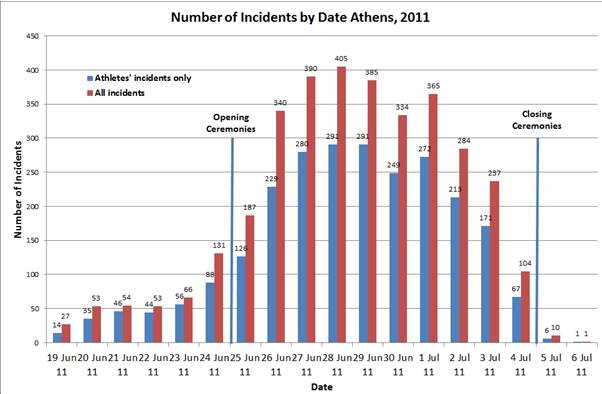
Greek version
The 55 Medical Centers were manned by many hundred Greek doctors and nurses working in shifts. HEALTHone MES was therefore made available in both Greek and English. At the click of a button HEALTHone switched between English and Greek so that users could use the language most familiar to them. All structured data entered in Greek was immediately visible in English as HEALTHone is inherently multilingual and is already available in multiple languages.
Note that not only did all structured data switch instantly between English and Greek but all systems commands and drop down menus changed too.
HEALTHone therefore behaved as a fully Greek solution for the Greek doctors and nurses.
- Los Angeles 2015
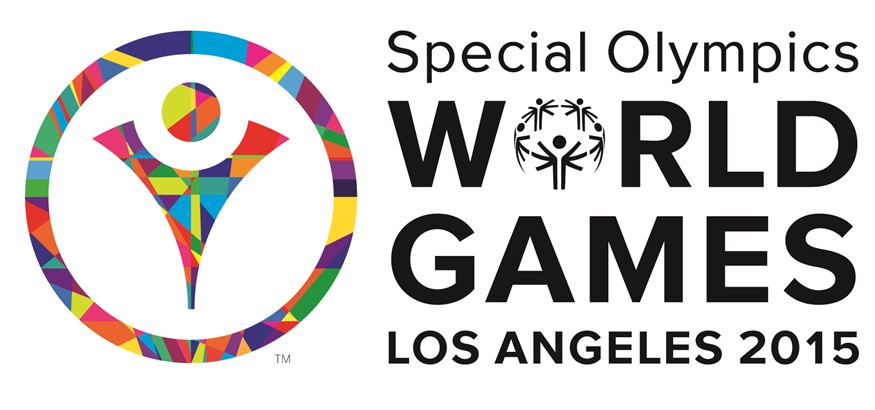
With 6,500 athletes and 2,000 coaches representing 165 countries, along with 30,000 volunteers and about 500,000 spectators, the 2015 Special Olympics World Games have once again been the largest sports and humanitarian event of the year.
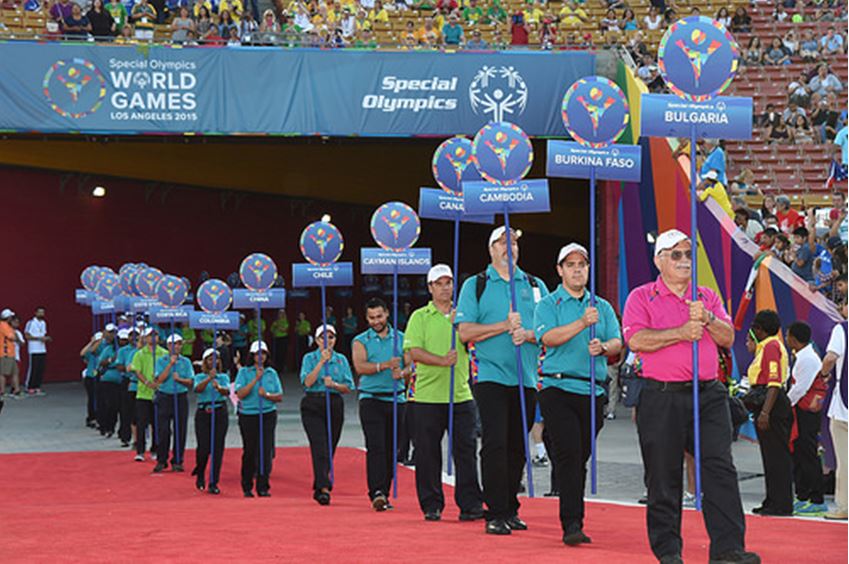
Athletes have been competing in 25 different sports at venues throughout Los Angeles, including USC and UCLA.
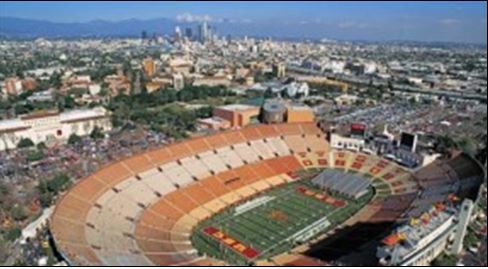
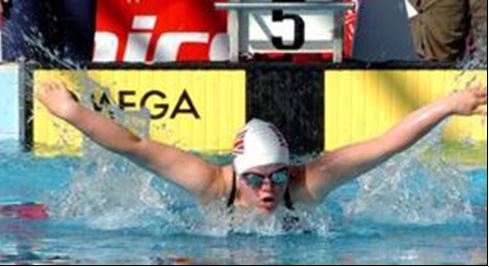
As for the previous Games, during the Los Angeles Games volunteer Healthy Athletes medical professionals have offered free health examinations to the athletes in several disciplines on the USC Campus.
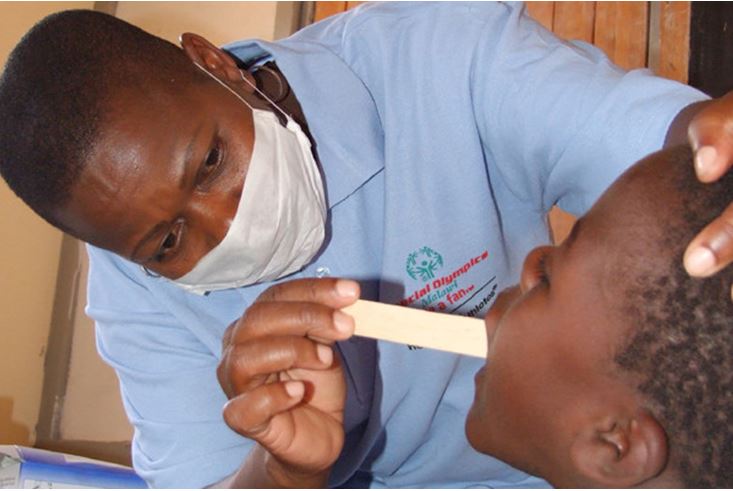
As a result of the partnership which started in 2003, the HEALTHone health record technology has been made available as a charitable contribution to Special Olympics. This technology has been used to record health examination data in four disciplines: Fit Feet (podiatry), FUNfitness (physical therapy), Healthy Hearing (audiology) and Opening Eyes (ophthalmology).
Special Olympics
Special Olympics was founded in 1968 by Eunice Kennedy Shriver, the sister of John F Kennedy, as an international non-profit organization dedicated to empowering individuals with intellectual disabilities through sports training and competition.
Special Olympics is the world’s largest amateur sports organization and provides year-round training and competition in 26 Olympic-type summer and winter sports.
3.7 million athletes in 170 countries participate at over 45,000 events every year at county, state, provincial, national and regional level, culminating in the Summer and Winter World Games every 4 years.
Alongside its sporting activities Special Olympics runs a global program called Healthy Athletes to provide free healthcare screening at over 900 worldwide each year. This makes Special Olympics unique. There is no other organisation in the world that seeks to offer free healthcare services to a population of 3.7m individuals in 170 countries.
There is no charge to athletes to participate in Special Olympics and the whole movement, world-wide, is supported entirely by volunteers and sponsorship.
Special Olympics is open to all races, religions and ethnicities regardless of income, class or gender. As a result, Special Olympic athletes represent the whole of humanity, multicultural and multilingual, from all societies and from all walks of life.
Special Olympics has no ethnic, religious or social agenda, simply the desire to help individuals achieve self respect and dignity, and acts with complete ethnic, religious and social sensitivity in all its global operations.
Proven benefits of participation in Special Olympics include:
- enhanced self-confidence and social abilities in daily life;
- greater readiness for employment;
- better preparation for independent living;
- increased ability to make personal decisions;
- improved friendships and family relationships.
Put simply, Special Olympics changes lives.